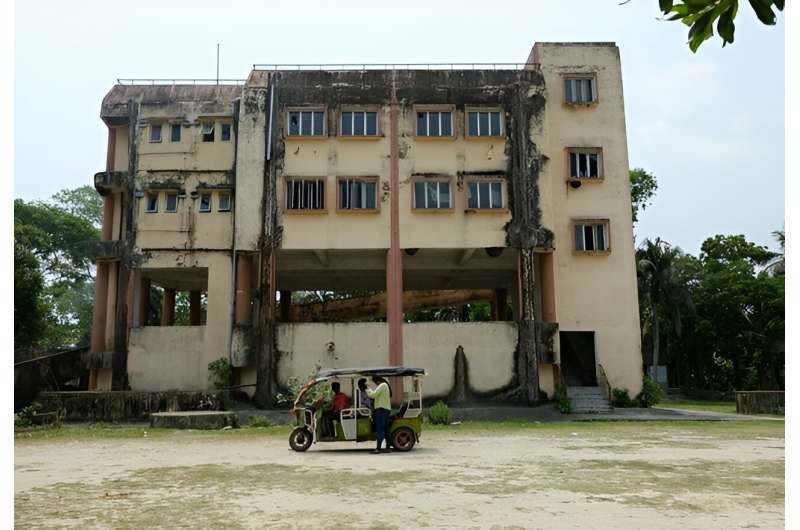

Fairly sharing the pains and the gains of energy systems
source link: https://techxplore.com/news/2024-01-pains-gains-energy.html
Go to the source link to view the article. You can view the picture content, updated content and better typesetting reading experience. If the link is broken, please click the button below to view the snapshot at that time.

January 31, 2024
Fairly sharing the pains and the gains of energy systems
by Eindhoven University of Technology

Our energy systems are characterized by two important injustices. First of all, not all people have the same degree of access to these systems (and their advantages). Secondly, the negative consequences of the systems—particularly climate change—are distributed unfairly. TU/e researcher Natascha van Bommel investigated how the current energy transitions can be used to mitigate these injustices.
As the Ph.D. candidate has always had an interest in climate change, she thought it would be a logical step to study energy transitions and how fair (or unfair) they are.
"Ultimately we are all affected by climate change, but for some people the consequences are already very noticeable, while not everyone can reap the benefits of our energy systems," she says. "Take energy poverty, where people cannot afford such things as heating their homes in winter. Also, not everyone has access to electricity, which is a very important factor in people's socio-economic development."
Her Ph.D. research is part of the European MUSE GRIDS project and focuses on the following question: If we stop using fossil fuels and switch to more decentralized energy generation, how will we organize this as fairly as possible?
Her dissertation consists of three parts: theoretical research into the fairness (or unfairness) of energy transitions, a study of several energy communities—citizen cooperatives that generate green energy—in Europe, and empirical research into the improvement of energy system access in the Indian region of Sundarbans.
She originally planned to do a lot of field research in the different communities, but due to the COVID pandemic she was unable to travel for quite some time and was forced to take a much more theoretical approach to her research, which she thinks is unfortunate.
"I really like talking to people on site and see what's happening with my own eyes." In Spain, for instance, she saw how passionate people were about the energy community they were setting up. It concerned a neighborhood association in Valladolid that had contacted an energy cooperative to generate more power in the district.
"They excitedly showed me on their phones how many kilowatt hours they were generating. Everyone there was super proud of what they had accomplished."
Long term
For the first, theoretical part, Van Bommel studied the tension between the urgency of climate action and the fairness of energy transitions. "On the one hand we want energy transition to be fast, but if you want to implement it fairly, you'll have to spend a lot of time considering the social impact. Intuitively, those two things clash," she says.
In her study, she shows that things are more nuanced. A rapid energy transition doesn't necessarily lead to more inequality, is one of her conclusions.
"If you don't implement energy transition fast enough, you can actually create more social inequality in the long term," she asserts.
"You can focus on the here and now, for instance by introducing a very high tax on flying and meat. This means those things will only be available to the happy few, so you're creating inequality right off the bat. But if you don't do this, you create inequality elsewhere on the planet and in the future. So you really have to weigh your options."
The big picture
It's often said that energy communities ensure a fair energy transition, but that's not necessarily true either, the Ph.D. candidate's research demonstrates."What caught my attention, for instance, is that not everyone in Europe has access to energy communities."
According to her, there's often a conflict between the energy communities and regulations, causing people to encounter obstacles. Also, setting up an energy community isn't without risk.
"If you start encouraging the decentralization of energy use and putting it into the hands of the people themselves, you're assigning great responsibility to the communities. But not everyone has technical or legal knowledge, or the opportunity to invest," she says. "Without good policy frameworks, injustices may be created, so everything must be embedded into legislation really well," she concludes.
She also thinks that instead of managing communities locally, as generally is the case now, we should look at the big picture. "The interaction between energy communities and the parties they depend on, which include local governments and tech companies, as well as the impact on the energy system at large."
Recommend
About Joyk
Aggregate valuable and interesting links.
Joyk means Joy of geeK